#almeria city
Explore tagged Tumblr posts
Photo

“The Wind And The Lion” by John Milius (1975) Sean Connery and Candice Bergen in Almeria.
4 notes
·
View notes
Text
Thank you Alice Oseman for making Charlie’s Grandparents from Almeria
#I never thought I would see my city in one of the most famous Netflix’s shows#Thank you#osemanverse#heartstoper#tomorrow comes out the new season#Alice has to have some family in Almeria (specifically Mojacar) or she has visited once maybe and loved it (who wouldn’t)#spain#españa#Almeria#thank you Alice#My mother and I started laughing and rubbed to my parents room to tell my father#That Charlie has Spanish heritage#And more specifically#From where both my father and I are#Mojacar#nick and charlie
0 notes
Note
your anora au fic had my jaw hanging. at first i couldn’t picture it all from the prompt but once i started reading your writing……ma’am you truly are the luigi fic whisperer

Losing Dogs Pt. 2 — { Luigi x Reader }
Content: SFW, kissing, meeting-parents-for-the-first-time-anxiety, big emphasis on Luigi being Italian, familial secrets, reader is a sex worker, fluff, sorry for any inconsistencies I got too stoned writing this
Wc: 7,010 (woah)
Notes: Click here to read part one.

It’s not the condo in Manhattan that the dinner would be held — instead, the Mangione’s main homestead in Sagaponack, which after googling, you’d realized was the second wealthiest zip code in the United States.
Right behind Atherton, California, of which the Mangione’s own a vacation house.
You sit with Luigi in the back of the Flying Spur, driven by a man you’d met only a few times before, Paulo.
He drove for both Luigi and his sister whenever she was in the city, and since Luigi much preferred driving himself, Paulo had been sitting pretty on his salary with very little to do for the Mangione’s, except as of late.
"Your sister is making me loco," Paulo says, catching Luigi's reflection in the rearview mirror, though Luigi seems more focused on your tense posture beside him. "She wants to go here and there, bringing this boy and that in the car." He gestures at the interior with a sort of wounded pride, as if each scuff mark on the premium leather is a personal affront. "They all are dirty Brooklyn boys."
You massage your temples with two fingers, fighting back a wave of irritation.
The irony isn't lost on you — how Paulo, who fled Almeria with nothing but a threadbare suitcase and desperate dreams, now speaks with the practiced disdain of old money.
Twenty years of opening doors for the Mangiones has made him forget the taste of struggle.
"Nothing's wrong with Brooklyn," Luigi mumbles, making a dismissive gesture toward the front — a subtle but clear command for Paulo to hold his tongue. You can't help but think that without Mr. Mangione's intervention years ago, Paulo might well be hustling in those same Brooklyn streets he now sneers at.
The same ones you grew up in.
"Yeah, if you like murderers," Paulo snorts, his Spanish accent thickening with each syllable of his obnoxious laugh.
Usually, long drives soothe your nerves — the world outside becoming a peaceful blur through tinted windows.
But now you're trapped here for two hours, gnawing anxiously at your thumbnail while trying not to chip the pristine red French manicure that matches your dress perfectly.
"Paulo," Luigi's voice drops dangerously low, his dark eyes drilling into the back of the driver's head. "Do you ever think about going back to Almeria?"
"No," Paulo stammers, his knuckles blanching against the leather steering wheel. "America is my home now, Lui. I do not wish to ever go back to Spain — not for as long as I live."
Luigi reclines, arching one perfect brow as a cold smile plays at his lips. "Ah," he clicks his tongue, catching Paulo's nervous glance in the rearview mirror. His voice takes on that silky quality you've only heard whispered about — the tone that makes even hardened men remember their mortality. "Then perhaps we should ensure you remain grateful for that arrangement. Wouldn't want circumstances to change."
Paulo swallows hard, as he returns his full attention to the road. The remaining tension in the car feels like a coiled spring, and you notice his hands have begun to tremble slightly against the wheel.
"Mi dispiace, Luigi," he mutters, his accent thickening with anxiety as he slips into practiced Italian instead of his native Spanish. "I spoke out of turn. Your sister, she is a wonderful woman. The boys she dates — they are fine young men."
Luigi's smile doesn't warm, but he settles back into the plush leather seat, seemingly satisfied with Paulo's discomfort.
He isn’t a monster.
Paulo wasn’t an illegal immigrant, and Luigi wasn’t threatening deportation — rather, Paulo was a felon on borrowed time, one toe over the line of last warning.
It wasn’t often Luigi had to use this advantage, but when he did, he made sure not to drag it out for longer than need be. He wasn’t much a fighter as he was a silencer — arguing took up too much time, and Luigi had never initiated a fight he knew he couldn’t win.
So, that does it.
The privacy divider glides up with a soft hum — Paulo's preemptive gesture of self-preservation.
You've been lost in the blur of passing scenery, mind wandering through the early summer landscape, when Luigi's touch anchors you back to reality. His hand finds your thigh, warm through the fabric, and his chin comes to rest on your shoulder. "What are you thinking about?"
You turn your head slightly, meeting dark eyes that seem to catch every flicker of emotion crossing your face. "Nothing important," Luigi's fingers tighten fractionally on your thigh — a gentle reminder that he can always tell when you're deflecting.
The passing shadows from the trees dance across his features as he studies you, patient and unrelenting.
It's that same quiet intensity that made you first notice him across a crowded room at Sapphire.
The kind of presence that doesn't need to announce itself to get attention.
"Try again.”
You're not sure you want to dig into it before you face it — the scrutiny of his parents.
It hits you then, a realization that makes your stomach twist; you've crafted a world where adoration comes to you as naturally as breathing.
At Sapphire, your regulars wait in their shadowy booths like devoted disciples, wallets ready and eyes hungry for your attention — you know exactly how to move, what to say, how to make them feel.
Even at the bars, you've carved out your own kind of sovereignty. Whether it's hustling pool from cocky frat boys who underestimate you, or standing up for the pretty bartender when some drunk gets too aggressive.
You know how to command those spaces, how to make them yours.
But this? A sprawling mansion you’ve only seen on Google with its manicured hedges and courtyards decorated with fountains? This is different.
You can't dance your way through this dinner.
Can't rely on the carefully constructed persona that makes men weak in the knees and keeps you safe behind its glittering facade; here, in this world of pride and predjudice you'll have to be raw, real, like Luigi’s sister says you are — the girl beneath the eyeliner and confident winks into the crowd.
While Luigi has seen all sides of you — the dancer who owns the stage and the girl who snorts when she laughs too hard, his parents will be looking for cracks in your armor, for signs that you're not quite what they imagined for their son.
And the first time in years, you're not sure how to make someone love you.
Your mind wanders to another conversation with Julia last Thursday in the dressing room.
She snaps her gum, the sound echoing against the tall ceilings as you wage war once again with your liquid eyeliner. Your reflection grimaces back at you — fourth attempt at the wing and still not quite right.
"I saw him again at Paradiso," she says, tugging at her glittery, sheer periwinkle tights before adjusting her sparkly top with practiced precision. Your hand stills for a moment — yes, that Paradiso Casino — where old money goes to play and new money goes to be seen.
Where the minimum bet could cover your Brooklyn rent.
Your eyes meet hers in the mirror briefly before returning to your careful strokes.
"He's totally workin' for his Pops, babe," Julia continues, leaning closer to the mirror to check her contour. "I saw him for like twenty minutes just watchin’ tables." She pauses for a second. Applies more of her newly gifted Dior lipgloss. “Dean says they call people who just like to watch Railbirds.” She smacks her lips together, “I said I call them cucks.”
You tried then to picture it — Luigi in Paradiso's opulent interior, reducing hundred-thousand-dollar bets to patterns and probabilities, while wearing what was probably another one of those cashmere sweaters that hung down to his thighs — just an unassuming spectator.
"What am I walking into?" Your voice shakes in the middle, uncertain of yourself for the first time in a long time — you realize here and now that you've surrounded yourself with constant familiars, hardly pushing many of the boundaries of comfort zones until this very moment.
You'd figure once you begin dancing, bare from the bellybutton up, that there must be very little in this world that would frighten you — but that's devastatingly far from the truth.
Facing Luigi's parents over dinner suddenly seems more daunting than any stage you've ever graced.
Luigi presses a kiss to your bare shoulder, nipping at it gently. "Hmm," he hums, pretending to think. His voice is soft and soothing, gentle as it wraps around your throbbing heart. "You're walking into my childhood home, where my mom's probably stress-making her third batch of Maritozzi, and my dad's pretending to work while actually practicing what he thinks are casual conversation topics."
He trails his fingers down your arm, leaving goosebumps in their wake.
"You're walking into the place where I first learned to code, where I have embarrassing high school photos hanging in the hallway, and where, after tonight, they're going to love you almost as much as I do.” Luigi doesn’t stumble over his words, doesn’t stutter — he says what he says, and he means it.
Following his confession, there is no apology — no stuttering of clarification that he didn't mean to say love, no awkward cough to cover the weight of those words.
You even give him a minute to backtrack, but he doesn't, his fingers just continue their lazy dance across your skin, as if he hasn't just tilted your world on its axis.
You try to imagine the scene he's painted for you, but it's so far from the image you've already created — ballgowns, flashy diamonds, crystal champagne flutes, designer everything.
Your mind has conjured a palace where apparently there's just a home, transformed his mother into some intimidating socialite instead of a woman who stress-bakes desserts.
It almost feels royal in a way, this mental image you can't scrub away despite Luigi's depiction of it seeming so wonderfully, terrifyingly normal.
“Your mother doesn’t just have it catered?” You quirk a brow, surveying what looks like shock washing over him, or perhaps disgust at such an idea.
“Oh, wait till you try it. Can’t cater a Mangione Maritozzi.” He shook his head, holding your chin while he pressed a kiss to your cheek, your sudden turn toward him to catch his lips much needed on both ends, finding some sort of tension release in panting into each others mouths for a few minutes until Paulo slowly rolled down the partition separating the front seats from the back.
"Lui, your Papa wants to know—" Paulo nods as if he could be seen on the other line, stumbling through the conversation with the endearing awkwardness of someone trying to be both chauffeur and messenger. "Okay— si —I'll ask—uh—" He catches your eye in the rear-view mirror, his crow's feet deepening with genuine warmth, sunlight catching the silver at his temples. "Sweetheart, what kind of wine do you like? Signore Mangione said it's important there's a bottle for you tonight."
You eye Luigi, and then Paulo.
Oh.
You’re sweetheart.
You think of all the wines Luigi has shared with you — those expensive bottles from the club brought home on quiet nights, the careful pairings at Eleven Madison Park where he taught you to roll each sip across your tongue before you swallow; your mind particularly lingers on the Italian wines, as if some part of you had always known this knowledge would be currency one day.
Though, you never imagined it would be spent trying to impress parents rather than clients.
"I like a Gavi," you offer, aiming for casual while your heart drums an unsteady rhythm. The wine brings back one of Luigi's stories — him describing it as 'beach wine' while tracing patterns on your bare shoulder, telling you about sun-drenched afternoons in Sicily where his mother would polish off a bottle before their lazy walks back to whichever summer villa they were occupying that season. "Chianti, Nebbiolo, Brunello, I like all of it."
Paulo's lips curl into what can only be described as a knowing smirk, giving one deliberate nod before sealing the partition between you once again, the mechanical whir of the window leaving behind a weighted silence and the distinct feeling that you've just passed something you didn't know you were taking.
"Good job," Luigi says softly, trying and failing to contain his pride, as if you'd done more than simply answer a question the way you always do — with careful honesty.
You like what you like, but there's always room for something new.
"Good job?" The words echo back, puzzled.
You're not sure when wine preferences became an achievement worth celebrating.
Luigi's hand finds your thigh, giving it an affectionate pat followed by those gentle squeezes that usually comfort, but now feel like morse code tapping out a message you're just beginning to decode.
And then you remember.
Everything is a test.
•
Everything blurs into a soft-focus haze, your body operating on pure instinct — that same autopilot that kicked in during your first night at Sapphire.
Back then, the stage lights had felt like interrogation beams, the music a distant thunder, until your survival instincts took over and carried you through. Now, your senses are simultaneously dulled and heightened, catching fragments of reality like a camera taking random snapshots.
What pierces through the fog is the moment the door swings open; the air hits you with a wave of sweet almond and fresh bread, so rich and warm it feels almost tangible. Children's laughter echoes down the corridors, their small feet pattering against hardwood as they weave through the hallways like ribbons of joy.
The space unfolds before you — a carefully curated gallery of moments and memories. Family photographs share wall space with original paintings, scenes of rolling Italian countryside and explosive flower gardens.
And suddenly, you begin to realize that this is a wealth that whispers rather than shouts; the kind that's been around long enough to feel comfortable in its own skin.
You're eventually greeted by a woman in the kitchen who embodies casual elegance in a way that makes you realize where Luigi gets it from.
Her white sleeves are rolled to her elbows with the kind of precise messiness that takes years to perfect, the fabric expensive but lived-in, flowing just so. The pinstriped shorts, cuffed and high-waisted, cinched with a statement leather belt, speak of Milan runway shows adapted for a day of baking.
"Don't mind my clothes," she says, leaning in to brush your cheek with a kiss that smells of vanilla and Tom Ford. "I've fallen so behind, I've been fussing over Maritozzo for hours." There's a theatrical exhaustion in her voice, but her eyes dance with the satisfaction of someone in their element, a slight smile playing at lips that look just like her son's.
"And I continue to tell her that one-hundred is enough." A voice rolls through the room like summer thunder, thick with an Italian accent that hasn't softened despite what must be decades in America. The hand that extends toward you belongs to a man who fills the doorway with both his physical presence and his personality, and you accept his handshake, noting how it's firm but careful —another test, perhaps, but one you've had plenty of practice passing.
"Oh, it's so good to finally meet you Mr. And Mrs. Mangione, I - I'm—"
"Please call me Marco." He interrupts with a smile that seems gentle but doesn't quite reach his eyes — the kind of smile you've seen Luigi use with his professors. "That's Val." He gestures to his wife with a casual authority that suggests he's used to making introductions for her. Despite the warmth in the air and the Italian bakery-scented welcome, your guard remains firmly in place, each sense fine-tuned to the subtleties floating beneath the surface. "We've heard plenty about you."
A chorus of pleasantries swirl in your direction, 'it's lovely to meet you' tangling with 'so good to have you' — but before you can choose the right response, Luigi's fingers find yours, index and middle, tugging you deeper into the Mangione mansion where it all surprises you.
Not in its grandeur, which you'd expected, but in its soul.
It's not the cold showpiece you'd imagined, but something more nuanced — generations of memories wrapped in the warmth of early summertime Sunday dinners and children's laughter, comforts in tradition.
"This is—" Your voice trails off as you pause in one of the hallways, eyes drawn to the carefully curated artwork. Here, in this section of the house, there's no room for casual family snapshots or children's artwork. These walls are a carefully composed love letter to artistry itself, each piece positioned with deliberate precision. "The closest I've felt to being in Italy."
Luigi releases a soft snort-laugh through his nose, the sound both amused and knowing. "Well, those two can't stand being away from home." He gives a slight shrug, his fingers still loosely tangled with yours. "Everything they touch turns to the Roman Empire, or something." There's affection in his mock exasperation, the tone of someone who's grown up watching his parents transform every space they inhabit into a piece of the country they leave behind during the summers.
Luigi's style runs a different current.
Modern, eclectic, with just enough echoes of his heritage to show he knows where he comes from but isn't bound by it. The condo in Manhattan speaks of someone who studied the rules before choosing which ones to break.
Where his parents fill their walls with Renaissance masterpieces and classical scenes, Luigi's space (which, is owned by his parents, of course) breathes with contemporary Italian designers and abstract art.
No dramatic death of Caesar there, no Venus emerging from her shell, no tragic Dido — his rebellion is subtle but distinct.
The thought trails off as you follow him further down a hall that curves like a question mark, through what appears to be some unspoken threshold between the house's public face and its private memories.
He slows at a door, his hand hesitating on the handle for just a fraction of a second. "My old room," he says, pushing the door open with a mix of pride and something almost like embarrassment.
It's a time capsule of teenage Luigi, preserved with the kind of maternal devotion that makes you wonder if Val dusts in here weekly — trophies catching light on shelves, vintage Ferrari posters carefully framed rather than taped, and what looks suspiciously like a perfectly made bed that hasn't been slept in for quite awhile.
"God, she hasn't changed anything," Luigi mutters, running his fingers along the edge of his old desk — sleek, dark wood that seems too grown-up for the teenage bedroom around it. "Pretty sure these are the same physics notes from high school."
You drift toward his bookshelf, finding an unexpected mix of Eco and Calvino alongside car magazines and engineering textbooks. The room tells its own story —of a boy caught between tradition and ambition, between his parents' world and the one he wanted to build for himself.
"All those years of them pushing me to be a doctor," he says with a quiet laugh, coming up behind you. His breath warms your neck as he reaches past to pull something from the shelf — a small trophy, its golden shine dulled by time. "And here I was, taking apart every electronic device in the house just to see how it worked."
It seems to come in handy now, your mind wandering to Julia's words in the dressing room again, her voice carrying that particular tone she uses when she thinks she's stumbled onto something significant.
He's workin' for his Pops.
And here you are, standing in the carefully preserved shrine to his engineering curiosity, wondering if maybe his teenage rebellion and his father's expectations had found some unexpected middle ground.
Through the window, you can see the garden where dinner will be served later — string lights already hanging in anticipation of sunset, white tablecloths rippling in the breeze like sails. But for now, you're in this preserved pocket of Luigi's past, watching him navigate the space between who he was and who he's become.
"Were there any more tests I wasn't aware of?" You ask softly, sinking onto Luigi's old teenage bed, your fingers tracing absent patterns on the duvet. Every inch of this room holds echoes – first dreams, last goodbyes, all the moments that shaped him into who he is now.
"No," he laughs, but it's gentle, almost protective as he steps closer. His fingers thread through your hair with a tenderness that makes your chest tight. "You know how he operates now — he'll come out of the woodwork when we least expect it." There's something bittersweet in how well Luigi understands his father's choreography.
Though, that much would make sense.
Luigi has spent his entire life studying Marco Mangione like a cipher to be cracked — mapping his father's habits, his patterns, calculating the precise atmospheric conditions needed for a 'yes' versus a 'no.' He'd tested theories over the years, debunked some while others proved as reliable as sunrise.
Each interaction a data point, each response carefully cataloged and cross-referenced.
Luigi had learned to read code before he ever knew what it was, picking apart the binary beneath every casual gesture, every loaded silence.
Now he does it reflexively, automatically translating the language of human behavior — a skill born from necessity that's become as natural as breathing. Even now, you can see it in the way his eyes track every micro-expression, every shift in body language, processing information most people never notice is there.
"They're much nicer than I thought." You tilt your head back to meet his gaze, fingers circling his wrists, thumbs tracing the ridges of his knuckles. "They looked nothing how I imagined."
"How do they look?" His voice is soft, curious.
"Exactly how I should have imagined them." Your laugh is self-deprecating, but it fades when you catch the look in his eyes. There's something tender and almost nostalgic there — like he's standing in two realms at once, the successful young man he's become sharing a silent understanding with the dreaming boy who once pressed engineering diagrams to the walls.
His fingers tighten slightly in your hair, and you wonder if he's thinking about all the times he imagined bringing someone he loved into this room, someone who could see past the carefully curated family narrative to the truth of him.
“I love you.” You say, hushed and whispered, but he hears you crystal clear; you try to recall the last time you’d said those words to someone who wasn’t a friend or relative, but you draw a blank.
That might just explain the heaviness in your chest.
"I love you." The words slip out in a whisper, but they ring with the clarity of a bell. You try to remember the last time you said those words to someone who wasn't bound to you by blood or years of friendship. The memory refuses to surface, and maybe that's why your chest feels so full it might burst.
"I love you." Luigi echoes, and his smile – god, his smile. It's the look of a man who's found something he didn't even know he was searching for, contentment settling into the lines of his face like it's finally found its home.
You press your lips to his palms, trailing kisses down to the pulse point at his wrists, breathing in the familiar scent of his skin.
In his touch, you find an anchor, even as everything else feels like it's shifting beneath your feet. This mansion in its previously feared hallways couldn't be further from your cozy Brooklyn studio or the vibrant streets of the Bronx where you visiting your grandmother growing up. Those pieces of yourself — they're treasures you'll always carry.
But here, wrapped in the warmth of Luigi's hands, you realize something profound; this isn't just another world you're stepping into. This is the life that's been waiting for you all along, patient as a prayer, faithful as the tide.
It's the kind of fairy tale the other girls at the club whisper about between sets — finding their Prince Charming, their golden ticket, their happily ever after.
Like Julia and countless others who dance with stars in their eyes, hoping each night might grant their wish. But you — you had started dancing with both feet planted firmly in reality. Each shift was simple mathematics; rent, textbooks, tuition. Bills that needed paying, dreams that needed funding.
Love wasn't even a footnote in your business plan.
“Lui!” A girls voice rings from down the hall.
Luuuuuui!
The door bursts open with the force of an incoming tide.
"Hello!" Her accent sits lighter than her mother's, a ghost of Italy rather than its beating heart. You find yourself wondering when Luigi chose to plant his roots here in American soil — a detail that somehow slipped through the cracks of all your late-night conversations.
Her hair cascades past her ribcage in twin braids, artfully disheveled in that way that takes hours to perfect. Those distinctive Mangione eyebrows — perfectly sculpted arches — frame eyes that mirror her brother's. Identical marks dot her cheeks like constellations, an echo of Luigi's own that make you smile, a nod at nature's persistent genetics.
Then it hits you — that nagging sense of familiarity crystallizing into recognition.
You've traced these features before, fingertips skimming glossy magazine pages in the dressing room between sets. Amelia Mangione, the sister Luigi speaks of with such fondness, whose career soared while keeping her family name carefully hidden from the headlines.
“Oh, tesoro," she clasps your hands with the reverence of answered prayers, her rings cool against your skin. "I'm so glad I won't have to spend another summer drowning in testosterone." The relief in her voice is genuine — you can hear years of being the sole daughter amongst sons, of finding solace only in her mother's company and the fleeting visits of her fashion-world friends from Paris and Milan.
Unlike Luigi, who wove himself seamlessly into the American lifestyle, Amelia kept one foot firmly planted in European soil, treating America more like a vacation home than native ground.
Your smile mirrors hers. "Lui, I'm taking the boat out. I wanted to invite the two of—"
"They're letting you drive the boat again?" Luigi's eyebrow arches skyward, his gaze drifting to the tree line where you imagine water glinting beyond it.
"Well, yeah, obviously—" She rolls her eyes with practiced elegance, her hands tightening around yours like you're co-conspirators. "I already lugged the wine up there." The shimmer on her cheekbones makes sense now, summer's heat having painted her in its golden light. "Andiamo!"
You glance down at your carefully chosen dress – the one you'd agonized over this morning, imagining a formal dining room and judging eyes – then back to Luigi, uncertainty blooming. "I don't have—"
"You will borrow one from me." Giulia waves away your protest before it can fully form, already three steps ahead in that way that speaks of years orchestrating fashion shoots and runaways.
"But —dinner — I'll look awful."
"It's just dinner." Her playful scoff punctures your bubble of worry, and suddenly you're seeing everything through new eyes. All your expectations of stuffed shirts and starched napkins dissolve in the face of her casual radiance. It's just dinner.
Not an inquisition, but an invitation to simply be.
The transformation was quick and painless.
In Amelia's room, she helped you select a bikini from her collection, each piece chosen with a model's eye for detail. The white Prada coverup whispered against your thighs as you padded barefoot across the grounds, all pretense of formality abandoned in favor of simple summer freedom.
It reminds you of visiting your mother in California.
The garage housed three mud-splattered Jeeps of which you piled in among the Mangione siblings — Luigi, Amelia, and a teenaged Luca — as well as a golden retriever that seemed to materialize from thin air, claiming his usual spot with the entitled ease of a family member.
"This place is fucking beautiful," you breathed over some Charli XCX song you recognize from pop nights at the club, watching the world transform through the window.
Luigi caught your eye, a smile playing at his lips as Amelia navigated the gravel paths — paths that, as Luigi couldn't resist pointing out, he and Luca had laid one sweltering summer.
Well, mostly him, while Luca performed his specialty..
Supervisory work from the shade.
The landscape unfolded like a secret forest, all rolling hills, wildflowers, and dappled shadows. It was hard to believe this was still New York — but then again, the Hamptons had always existed in its own ethereal pocket of reality.
The Jeep comes to rest atop a gentle rise, and like a cork popping from champagne, everyone spills out.
Enzo — the golden retriever/ Fourth Mangione sibling — leads the exodus, a streak of gold against green as he bounds down the slope toward the waiting water.
The pontoon boat rocks lazily in the quarry lake, its surface shifting between sea glass and cobalt blue as bright white clouds drift overhead.
"Enzo!" Luca's voice carries across the water as he chases after the dog who's already making abstract art in the shoreline sand, transforming his golden coat into a masterpiece of wet fur and grit.
You stand transfixed, and Luigi reads the questions in your expression without needing to be asked for an explanation.
"They were digging for limestone and hit a spring," he explains, tying the drawstring on his swim shorts. You’ve already drooled over his thighs before piling into the Jeep. "If you can believe it, it'd cost more money to stop the water from filling up the quarry than they'd be making from the mined limestone, so they just said fuck it."
He’s info-dumping now, something you’d grown accustomed to, and you accept his offered hand as you step onto the boat. "I guess that's one way the universe can eat the rich," he muses, both of you watching sunlight fracture across the water's surface, turning the quarry into a sparking kaleidoscope of light.
Amelia claims her position at the helm with the easy confidence of someone who's spent countless summers in that very spot.
For better or for worse.
Her playlist fills the air as she calls out commands, “Everyone to the back!” the authority in her voice earned through experience rather than inheritance.
Still, the boat stubbornly clings to its sandy berth until Luigi drops into the shallows with practiced grace.
You watch as he pushes against the hull, sun-soaked muscles straining before vaulting back aboard in one fluid motion, “You’re welcome, captain!”
It's here, in this unguarded moment, that you see past the polished veneer of wealth and a computer science degree — you see him as simply a brother, a son, a young man shaped not just by privilege but by the genuine bonds of family love.
Water drips from his soft skin, and his laughter mingles with Amelia's music, and somehow this feels more valuable than all the limestone they never mined.
The Luigi you know moves through life like a metronome — the way he times his coffee to brew exactly as he finishes his morning shower, how he highlights textbooks in perfect diagonal strokes, the precise rhythm of his knife against the cutting board.
But here, those patterns dissolve into something wonderfully unpredictable. Something you’ve always feared suddenly being embraced.
"I've heard sooo much about you," Amelia whispers gently, her words nearly carried away by the gentle breeze.
You're both stretched out on the pontoon's cushioned stern, sharing the patch of shade, a secret hideaway from the blazing sun. Her tone carries no judgment or scrutiny — just the warm curiosity of someone finally meeting a character from stories they've grown to love.
You watch the brothers from where you lie, their athletic forms silhouetted against the sparkling water as they compete in increasingly elaborate flips off the boat's edge. "I'm hoping all good things," a laugh escapes you, but there’s an unspoken understanding in Amelia's presence — the careful way she's welcomed you into their world shows her trust in Luigi’s judgment.
"Never a bad word from that boy," Amelia responds, clicking her tongue with knowing affection. "You know him." And you do — you know how Luigi moves through life with a studied grace, how even his frustrations with difficult professors or unsettling clients at Sapphire remain carefully contained, expressed in subtle shifts of posture or the briefest tightening around his eyes rather than outright complaint.
"Has he always been that way?" You push your sunglasses up, surrendering your carefully styled curls to the inevitability of lake water and summer air, gathering them into a ponytail that's more practicality than style.
Amelia considers the question over the rim of her glass, the rosé painting sunset colors across her cheeks. "Yes. Papa hates it." Her lips curve into something too complex to be a grimace, the beauty mark above them emphasizing every nuance of the expression. "But found a way to work with what he was given."
The implications ripple outward — a father playing a long game of chess with his children as pieces.
Luca's youthful charm deployed like a pawn, Amelia's beauty advanced like a queen, Luigi's intellect positioned like a knight, each move calculated for maximum advantage. "Oh, with work?" Your voice emerges cautious and knowing, channeling Julia's ability to navigate delicate waters while gathering information.
"Mhm." Amelia clinks her wine glass against yours. "Lui is Papa's cash cow. Without him, his business would be somewhere in the bottom of this quarry." Her gesture sweeps toward the water where her brothers have hoisted themselves onto a dock floating out in the distance. "Luca is too young to make money for him like that just yet, and there's only so many of Papa's friends who will agree to business matters from the mouth of a twenty-two year old with a degree in fashion design." She gestures toward herself.
"Do you think he likes the work he does with your father?" The question catches in your throat, followed by a softer admission: "We don't talk much about it."
You watch realization cross Amelia's face like a cloud passing over the sun — the sudden awareness that she might have ventured into forbidden territory.
Still, she answers with a stark simplicity, "No," as she shields herself behind designer frames. "But Lui loves Papa, and has become too much of an asset to back out now." She reclines onto her back, empty wine glass balanced perfectly in manicured fingers, adding with quiet finality, “At least without any consequences."
•
The sun has left its mark in the pleasant heaviness of your limbs as you settle at the dinner table. Your arrival dress, that careful splash of red, feels like it belonged to a different day entirely.
Now you're draped in white cotton that catches the evening breeze, a piece of Amelia's artistry that she'd gifted with casual grace, claiming it found its true home in your wearing of it.
The moment you've been bracing for arrives with the setting sun, and you can feel the weight of possibilities — both wonderful and terrible — hovering over the set table.
If this is where your fairy tale shatters, at least you'll have the memory of Luigi's laughter echoing across the quarry, of Luca's backflips, of Amelia's conspiratorial wine-warmed confidences.
A perfect day to cushion whatever comes next.
"So," Luigi's mother begins, her attention settling on you with the precision of a gallery curator examining a new acquisition, "Luigi told me you're studying philosophy."
The conversation unfolds with an easy grace that belies your earlier anxiety. Under the table, Luigi's hand finds your thigh — an anchor point of warmth and reassurance. His thumb traces lazy circles against skin still holding the day's sunshine, while above the crisp white tablecloth, you weave your way through dinner conversation with an effortless charisma.
The harsh spotlight fades as conversations bloom around you like night flowers, a blessed reprieve.
Luca leans across the table, gesturing with his fork as he tells you about Italian high school trends, while Amelia's tales of Parisian fashion houses paint pictures of silk and scandal. Little cousins squabble over the last Maritozzi, their faces smeared with cream as they declare Zia Val the best baker in all the universe, while aunts and uncles trade stories of the Mangione siblings’ childhood, each memory polished smooth from repeated telling.
As sunset bleeds into dusk, fireflies begin their dance over the lawn.
The younger cousins and Luca — still bound by the unspoken hierarchy of family duties — clear plates from the long garden table with practiced efficiency.
Around you, the family disperses into familiar patterns; teenagers float on oversized loungers in the soft-lit pool once they’ve finished cleaning up, their phones glowing like stars; the older generation gravitates toward the stone fire pit where flames paint their faces in flickering gold; others drift between conversations, moving from plush patio seats to gently swaying porch swings with glasses of wine and limoncello.
"I'm gonna be right back." Luigi bends down, his cologne wrapping around you like an expensive promise as he interrupts your debate with Luca about Machiavelli's modern relevance in American universities. His hand brushes your shoulder — casual, proprietary — you catch something tense in the set of his jaw that doesn't match his easy smile.
You wave him off, drawn back into Luca's passionate defense of Italian philosophical traditions. It's only when you're thirty minutes deep into comparing Gramsci interpretations that you realize Luigi's "right back" has stretched into a conspicuous absence.
"Which door will take me to the closest bathroom?" You nudge Amelia, who's sprawled beside you on the oversized porch swing, both of your phones glowing with newly exchanged social media profiles. She's already added you to her close friends Instagram list and declared your birth charts "literally perfect" – Leo moon to your Scorpio rising, whatever that means.
The wine has made her affectionate; she giggles into your shoulder, her Cartier bracelet catching the garden lights.
"Oh — hm," she pauses, wine glass tilted thoughtfully against her lower lip. Her eyes scan the villa's facade until they land on a set of French doors, their elegant frame nearly hidden beneath cascading ivy that glows emerald in the garden lighting. Through the glass, you glimpse the lush interior of what appears to be a greenhouse. "That one. Go in and turn left. Just before Papa's study."
The last words seem to sober her slightly, though you can't tell if it's the mention of her father or just the wine catching up to her.
You fortify yourself with another generous sip of wine before crossing the starlit lawn.
The greenhouse welcomes you with a wall of perfumed air, and you pause despite your mission, admiring how Val has transformed this space into a jungle of orchids and climbing vines that seem to glow in the orchestrated lighting.
Through the leaves, crystal wind chimes catch the evening breeze, their soft music following you as you transition from the humid warmth into the estates air-conditioned interior, where maplewood floors and elaborate crown molding remind you exactly whose house you're in.
The wine has softened the edges of Amelia's directions. Left at the-or was it right after the — You pause, orienting yourself in the maze of hallways, when voices drift down the corridor.
Making an executive decision that human sounds are better than wandering lost all night, you follow them.
But three steps in, something in those voices. Their pitch, their intensity, turns your wine-warmed blood to ice.
You freeze mid-step, suddenly aware that you're hearing something you shouldn't.
Again.
The plush runner beneath your feet muffles any sound of your presence as the conversation from behind the study door grows clearer, more distinct.
"I can't keep doing this," Luigi's voice, stripped of its usual warm humor, carries a rare edge of desperation. "The risks are getting-“
"Non dire stronzate." Don’t talk nonsense. His father's reply cracks like a whip through the air. "The Paradiso matter needs handling. Their whale is getting too lucky, and you will take care of it. Tomorrow."
"He's not lucky — he's skilled. And I won't-“
"Do not dare to tell me no." The subtle shift in his father's tone makes you shiver despite the lingering warmth of the summer evening. Crystal clinks against crystal as ice cubes settle in what you imagine is his ever-present scotch. "Everything you are, everything you have. Who gave you all of it? Have you forgotten who paid for that degree you still haven’t finished?"
"I know." Luigi's voice sounds suddenly tired, hollowed out. "You never let me forget."
"The casino crumbles without these controls. You think Luca's art school in Florence, Amelia's little fashion dreams in Milan — you think any of this exists without sacrifice?" A pause, then softer, "La ragazza... She is lovely. Charming. But what does she bring to our name besides pretty smiles and trouble? Tell me, figlio mio, what does a sex working philosophy student offer the Mangiones except distraction?"
Another clink of ice, the creak of expensive leather, a sharp exhale.
"I'll watch the tables tomorrow." Luigi's submission comes quietly, defeat threading through each syllable. "But I beg you to remember that you cannot do this without me.” You hear him stand, and you can tell his jaw is clenched when he says, “And you will leave her the fuck out of it.”
#💌#thank you so much anon I love you!#lowkey kinda self indulgent on this one#queened out and made a playlist for it#I literally just wanted to write Luigi as a boy enjoying life but struggling due to familial pressures#and you are just stuck in the middle of it somehow#req#luigi mangione x reader#luigi mangione fanfic
124 notes
·
View notes
Text


Ophelia of Lausanne, Queen of Windenburg (1620-1673) - Part 6 - Early Revolutionary Years
Despite the alliance with Almeria and their generous trade agreements which improved the economic situation in Windenburg, the people were angered by a Jacoban marriage. The people believed that Ophelia had been behind the marriage and blamed her for corrupting the Royal Family. In 1654 revolts against the gentry began known as the Flour Rebellions. Due to famine, farmers couldn’t pay their landlords and were falling behind on their rent. The Gentry did not relent and were met with angry hostile mobs which burnt country homes across the kingdom. Ophelia advised her husband to support the gentry against the peasants, but instead, James listened to the peasants on the advice of his favorite, the Duke of Berkeley. The gentry was forced to lower their rent in favor of the peasants in 1655.
The tension between the people and the King calmed down, but the nobility enraged. By 1656 most of the nobles left court, deserting the royal family, signaling the start of a rebellion. In February of 1656, Parliament assembled in the presence of the King and stated their grievances. Ophelia was at her husband’s side when he dissolved parliament at Windslar Palace and did not install a new government. Following the dismissal of parliament, James was warned that the Duke of Dartmouth, the Duke of Kinghorn, and the Earl of Franklin would raise an army in Witham. To prevent this, James ordered their arrest the same day, however, he failed and the trio had already fled the capital.
The failure to capture the three noblemen marked the beginning of the Windenburg Civil War. The Duke of Dartmouth gathered hundreds of Windenburgian Noblemen and Politicians in Witham to raise an army and overthrow the king. Fearing for their family’s life, James and Ophelia fled Windenburg and sought refuge in Glencraig. During this time Ophelia spent time secluded in her chambers with her children and grandchildren. Ophelia rarely left Glencraig Castle, fearing an assassination or kidnapping.
From February to May, cities across the country declared their allegiance either to the noblemen or to the King. James gathered his forces at Glencraig, with the Duke of Berkley organizing his militias. James gathered supplies from Royalist strongholds such as Coventry and Devonshire, while cities like Roxburghe and Newhaven refused to offer the king ammunition. As both sides began to gather supplies from cities around the country, Ophelia was sent to the continent to raise money for the royalists. Ophelia spent a year and a half abroad at several royal courts championing the royalist cause. Ophelia was able to convince her son-in-law, the Prince of Brichester, to lend two thousand troops to their cause.
By the summer of 1656, both sides were marching toward each other with armies around the size of 15,000. It was inevitable that the armies would clash, resulting in the Battle of Whitfield. A cavalry led by the royalist Duke of Canterbury defeated a revolutionary army of 1500, approximately twenty miles north of Windenburg. Throughout the early summer, the Royalists defeated the Revolutionaries in several skirmishes and small battles.
Beginning in the summer, Windenburg became a center of political tension, with protests in favor and against the war. A peaceful rally in favor of the war was met with violence as the Royal Guard fired upon the crowds. Hundreds of people were imprisoned and a curfew was imposed upon the city. James and his troops marched toward Windenburg which was in the hands of the Earl of Coldwell, a neutral force in the war. James along with an army of 4,000 marched toward Windenburg where the Earl handed the city over. For the next year, James remained in Windenburg while armies led by his close advisors, the Duke of Berkley and the Earl of Queensbury consolidated power in Southern Windenburg.
#sims4#sims#legacy#royallegacy#royalty#ts4 royals#ts4#ts4 royal#ts4 legacy#ts4 story#s4 story#sims 4 story#ts4 historical#s4 historical#sims 4 historical#sims 4 history#ts4 history#s4 history#windenburghistory
43 notes
·
View notes
Text
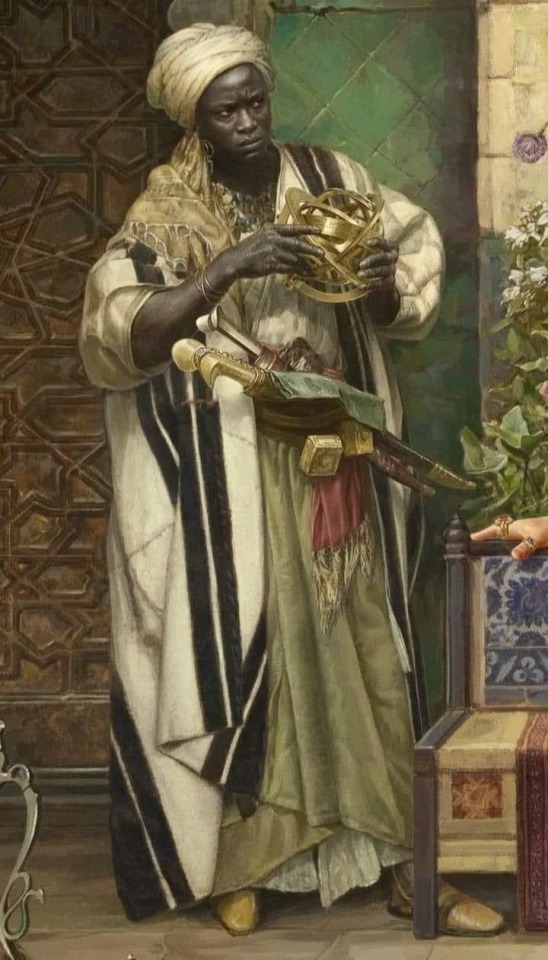
WHEN BLACK-MEN RULED THE WORLD
Some Things You Did Not Know About the Moors of Spain
1. The Spanish occupation by the Moors began in 711 AD when an African army, under their leader Tariq ibn-Ziyad, crossed the Strait of Gibraltar from northern Africa and invaded the Iberian peninsula ‘Andalus’.
2. A European scholar sympathetic to the Spaniards remembered the conquest in this way:
a. The reins of the Moors horses were as fire, their faces black as pitch, their eyes shone like burning candles, their horses were swift as leopards and the riders fiercer than a wolf in a sheepfold at night . . . The noble Goths [the German rulers of Spain to whom Roderick belonged] were broken in an hour, quicker than tongue can tell. Oh luckless Spain!
Quoted in Edward Scobie, The Moors and Portugal’s Global Expansion, in Golden Age of the Moor, ed Ivan Van Sertima, US, Transaction Publishers, 1992, p.336
3. The Moors, who ruled Spain for 800 years, introduced new scientific techniques to Europe, such as an astrolabe, a device for measuring the position of the stars and planets. Scientific progress in Astronomy, Chemistry, Physics, Mathematics, Geography and Philosophy flourished in Moorish Spain.
4. Basil Davidson, one of the most noted historians recognized and declared that there were no lands at that time (the eighth century) “more admired by its neighbours, or more comfortable to live in, than a rich African civilization which took shape in Spain”
5. At its height, Córdova, the heart of Moorish territory in Spain, was the most modern city in Europe and the world. The streets were well-paved, with raised sidewalks for pedestrians. During the night, ten miles of streets were well illuminated by lamps. This was hundreds of years before there was a paved street in Paris or a street lamp in London. Cordova had 900 public baths – we are told that a poor Moor would go without bread rather than soap while the then
Queen of England never had a bath!
6. The Great Mosque of Córdoba (La Mezquita) is still one of the architectural wonders of the world in spite of later Spanish disfigurements. Its low scarlet and gold roof, supported by 1,000 columns of marble, jasper and and porphyry, was lit by thousands of brass and silver lamps which burned perfumed oil.
7. Education was universal in Moorish Spain, available to all, while in Christian Europe more than ninety-nine percent of the population were illiterate, and even kings could neither read nor write. At that time, Europe had only two universities copied from Spain, the Moors had seventeen great Universities! These were located in Almeria, Cordova, Granada, Juen, Malaga, Seville, and Toledo in which the majority of the lecturers were women.
8. In the tenth and eleventh centuries, public libraries in Europe were non-existent, while Moorish Spain could boast of more than seventy, of which the one in Cordova housed six hundred thousand manuscripts.
9. Over 4,000 Arabic words and Arabic-derived phrases have been absorbed into the Spanish language. Words beginning with “al,” for example, are derived from Arabic. Arabic words such as algebra, alcohol, chemistry, nadir, alkaline, and cipher entered the language. Even words such as checkmate, influenza, typhoon, orange, and cable can be traced back to Arabic origins.
10. The most significant Moorish musician was known as Ziryab, the Blackbird who arrived in Spain in 822. The Moors introduced earliest versions of several instruments, including the Lute or el oud, the guitar or kithara and the Lyre. Ziryab changed the style of eating by breaking meals into separate courses beginning with soup and ending with desserts.
11. The Moors introduced paper to Europe and Arabic numerals, which replaced the clumsy Roman system.
12. The Moors introduced many new crops including the orange, lemon, peach, apricot, fig, sugar cane, dates, ginger and pomegranate as well as saffron, sugar cane, cotton, silk and rice which remain some of Spain’s main products today.
13. The Moorish rulers lived in sumptuous palaces, while the monarchs of Germany, France, and England dwelt in big barns, with no windows and no chimneys, and with only a hole in the roof for the exit of smoke. One such Moorish palace ‘Alhambra’ (literally “the red one”) in Granada is one of Spain’s architectural masterpieces. Alhambra was the seat of Muslim rulers from the 13th century to the end of the 15th century. The Alhambra is a UNESCO World Heritage Site
14. It was through Africa that the new knowledge of China, India, and Arabia reached Europe. The Moors brought the Compass from China into Europe.
15. The Moors ruled and occupied Lisbon in Portugal (named “Lashbuna” by the Moors) and the rest of the country until well into the twelfth century. They were finally defeated and driven out by the forces of King Alfonso Henriques. The scene of this battle was the ‘Castle of St. George.’
Beginning in the 12th century and continuing for hundreds of years, the Inquisition was infamous for the severity of its tortures and its persecution of Jews and Muslims. Its worst manifestation was in Spain, where the Spanish Inquisition was a dominant force for more than 200 years, resulting in some 32,000 executions.
153 notes
·
View notes
Text
you know my problem is that i’m actually more confident in a victory tonight than i am when we are facing any of the bottom 10 teams in the league
like please give me manchester city over almeria any day
9 notes
·
View notes
Text
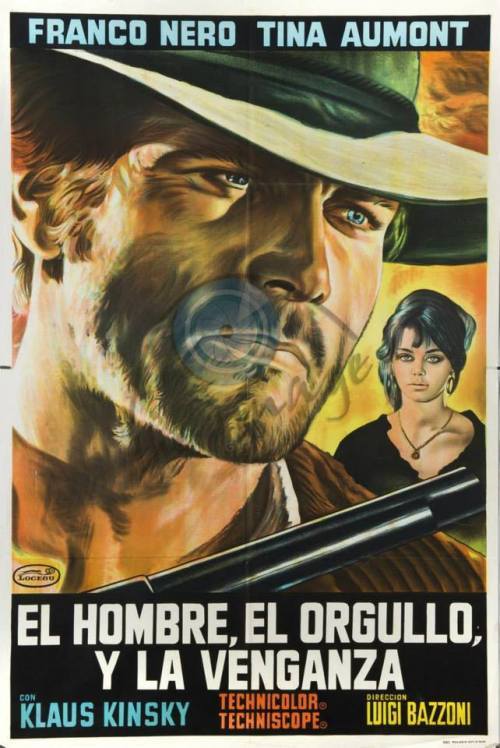
Carmen Screencaps!!
Man, Pride and Vengeance (Italian: L'uomo, l'orgoglio, la vendetta, German: Mit Django kam der Tod), also known as With Django Comes Death, is a 1967 Italian Spaghetti Western film directed by Luigi Bazzoni and starring Franco Nero as Don José, Tina Aumont as Carmen and also starred Klaus Kinski as Lt. Miguel Garcia, Carmen’s Husband. The film is a spaghetti western version of the novella Carmen by Prosper Mérimée. It was filmed in Tabernas, Almeria, Andalucia, Spain.
Plot (it may contain spoilers)
When stalwart Spanish soldier Don José meets the stunningly beautiful Carmen, he becomes instantly obsessed with the mysterious gypsy woman. After discovering she has cheated on him with his Lieutenant, Jose kills the officer during a brawl and flees the city. Forced to become a bandit, Jose partners with Carmen’s villainous husband Garcia to rob a stagecoach and prove his love for the seductive femme fatale.
Cast
Tina Aumont - Carmen / Conchita
Franco Nero - Sergeant José / Django
Klaus Kinski - Garcia, Carmen’s Husband
Guido Lollobrigida (as Lee Burton) - Dancairo / Lopez, Smugglers’ Leader
Franco Ressel - Lieutenant Pepe / Commander
Karl Schönböck - English Diplomat
Alberto Dell'Acqua - Remendado, Young Smuggler
Marcella Valeri - Dorotea, Carmen’s Landlady
Maria Mizar - Maria, Carmen’s Rival
Mara Carisi - Nina, Tavern Keeper in Triana
Anna De Padova - Factory Worker
Tino Boriani - Soldier Guido / Pedro
Giovanni Ivan Scratuglia - Soldier Arresting Carmen
Aldo Vasco - English Diplomat’s Bodyguard
The film was released on 22nd December 1967.
#Tina Aumont#L'Uomo L'Orgoglio La Vendetta#1967#1967 L'Uomo L'Orgoglio La Vendetta#Carmen#Carmen screencaps#Franco Nero#Klaus Kinski#Luigi Bazzoni#spaghetti western
7 notes
·
View notes
Text
Quentar to Granada
18km in 4:30 hours walking time, about 500m of elevation and a lot of downhill.
We met Jean Charles (I was close) for breakfast in the bar we’ve spent all of our time in, in Quentar and then headed out to begin the walk to Granada.
Another lovely day of walking though quite chilly at the start. Also there’s a lot more vegetation now than when we started in Almeria and after last night’s rain it was quite wet.
We spent a lot of the day walking beside a river. Again today’s walk was quite popular with gravel riders. There wasn’t much in the way of villages along the route so about 8km in we stopped for a snack break.
It was quite a shock to the system arriving in a city, particularly one crawling with tourists on a Sunday. It did make the ending a bit anti climatic as we struggled through the throng of people and couldn’t see the way markers.
We did find the cathedral but even there they couldn’t stamp our credentials until tomorrow. A bit nonplussed the three of us took ourselves off for a celebratory drink. Jean Charles is continuing on the day after tomorrow. I hope he finds other pilgrims to walk with.
We bid Jean Charles farewell and then headed off to find our accommodation. It’s got a very typical entry courtyard but then inside is quite dark, something we’ve discovered is emblematic of houses down south. I guess it keeps it cooler in summer.
We had lunch at a bar at the end of our street then emptied our backpacks, washed ourselves and our clothes and relaxed watching tv.
Tonight after some grocery shopping we tried out a couple of bars before indulging in a delicious Moroccan meal in the Arab quarter. Granada has some much history which makes it such a vibrant place.
We added up our kilometres walked and it seems my 217km was a bit out, we’ve actually walked 205km to Granada leaving us 1,190km to Santiago de Compostela.
3 notes
·
View notes
Text
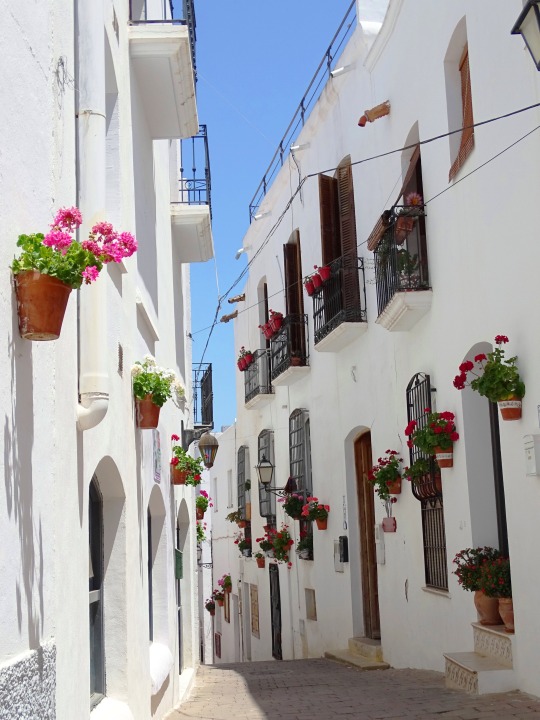


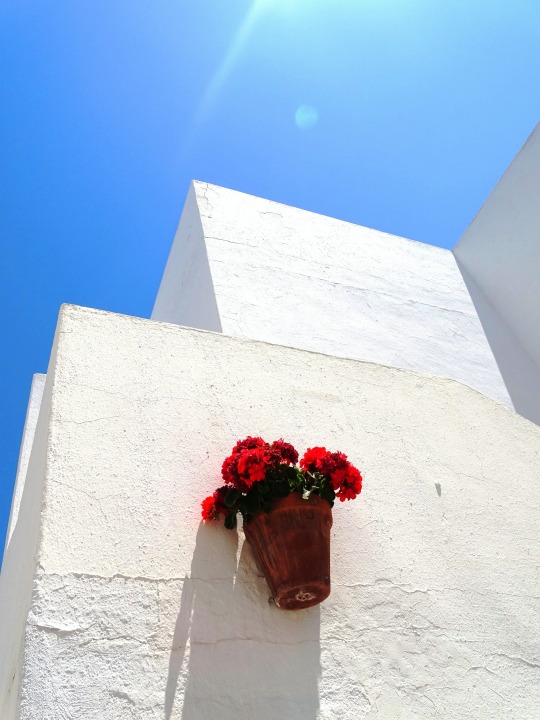
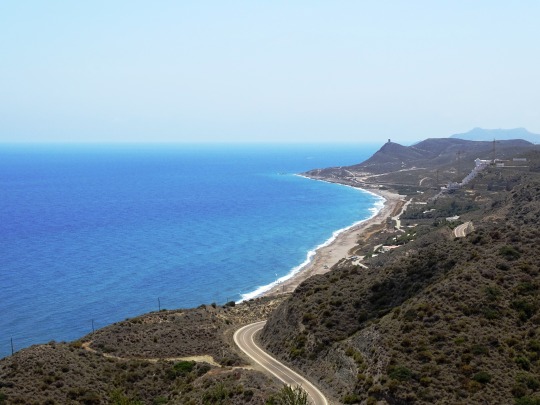


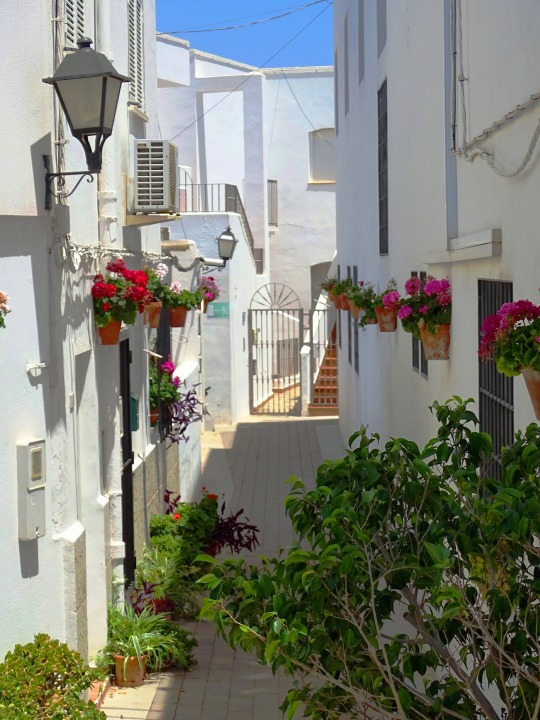
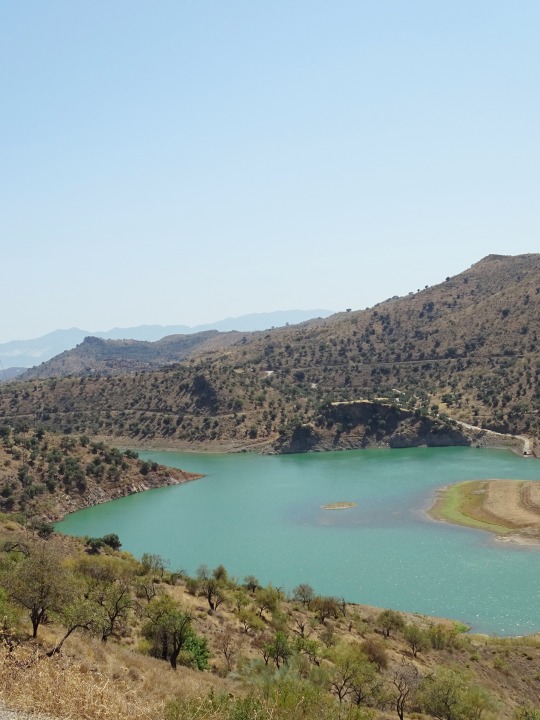
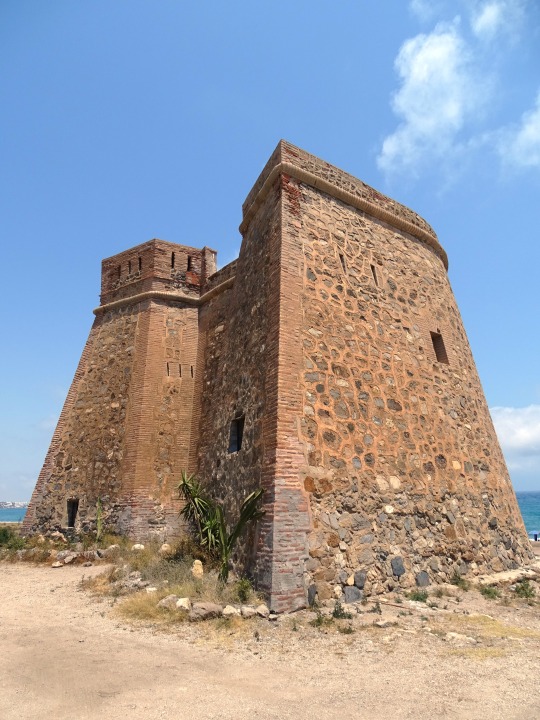

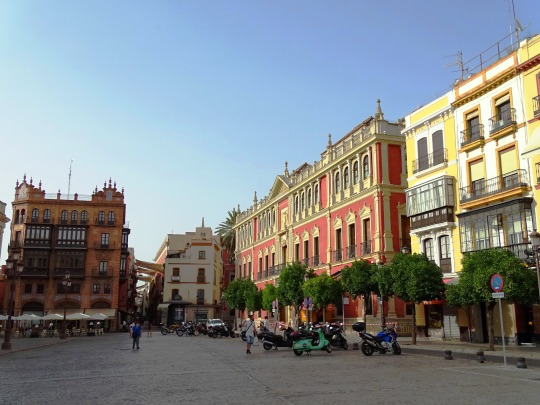

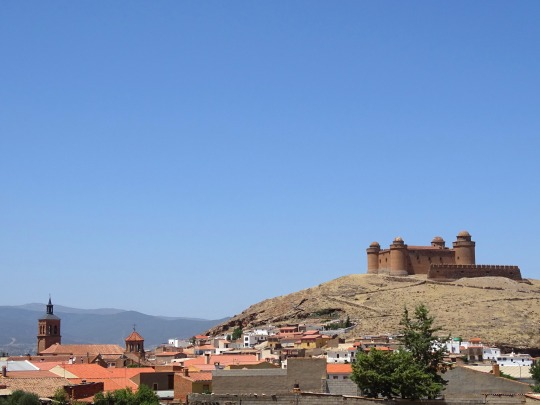
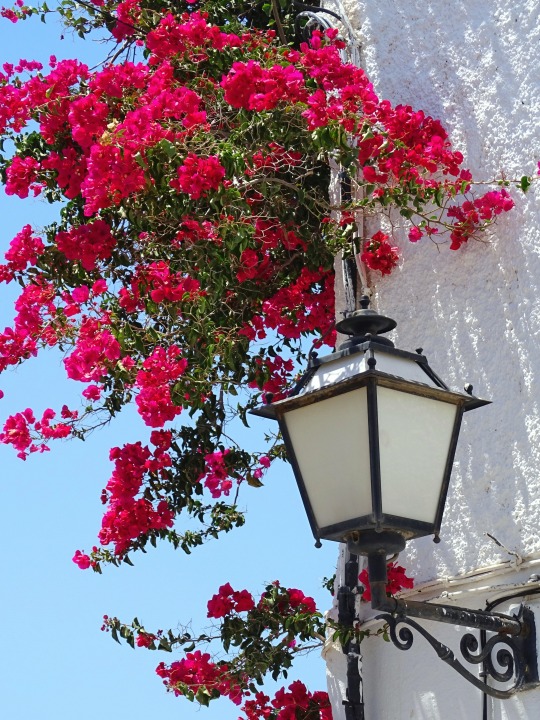
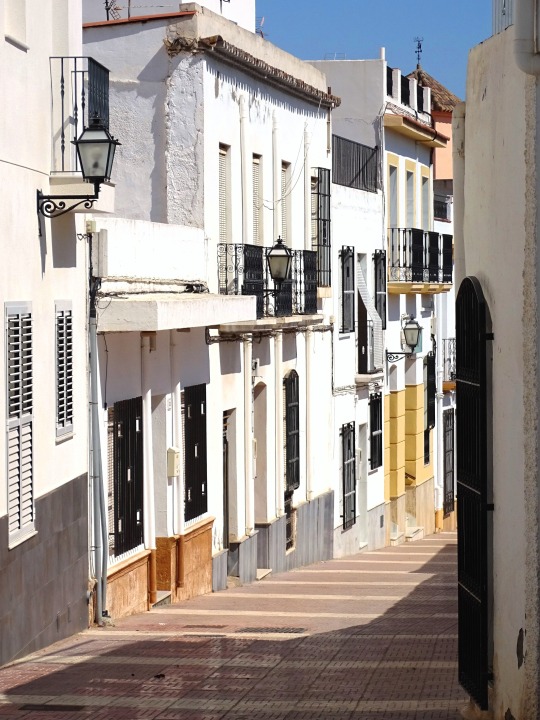


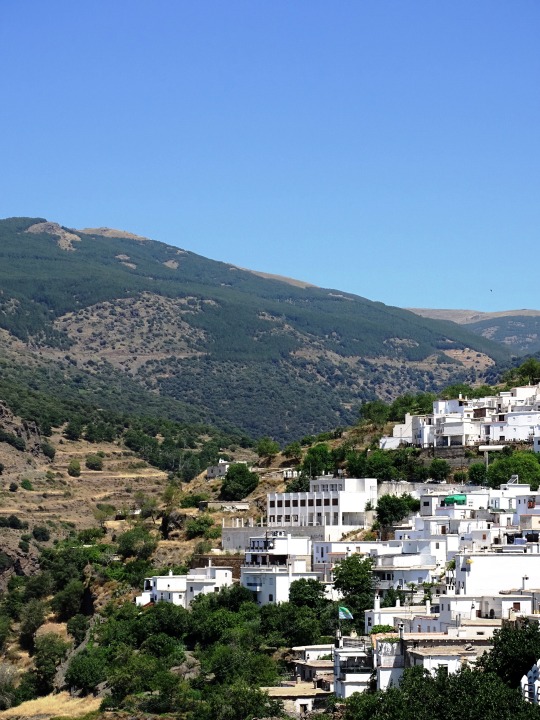
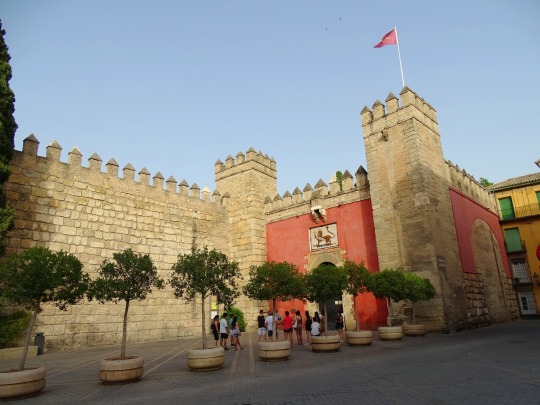
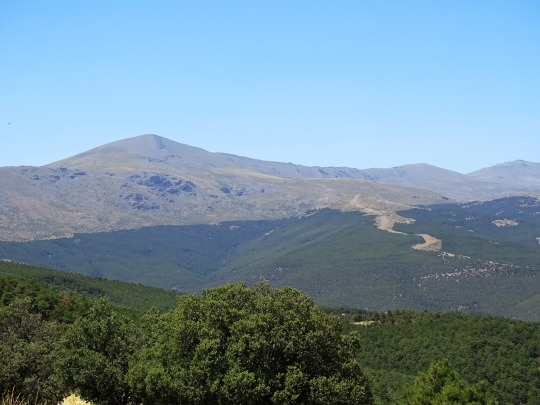
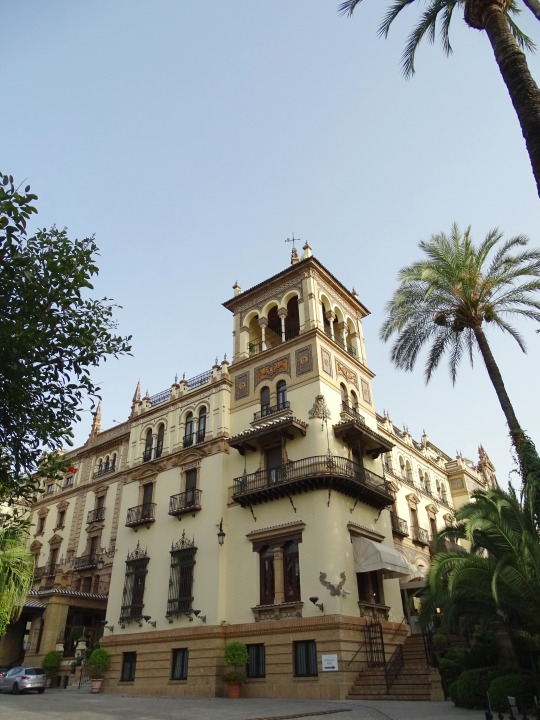

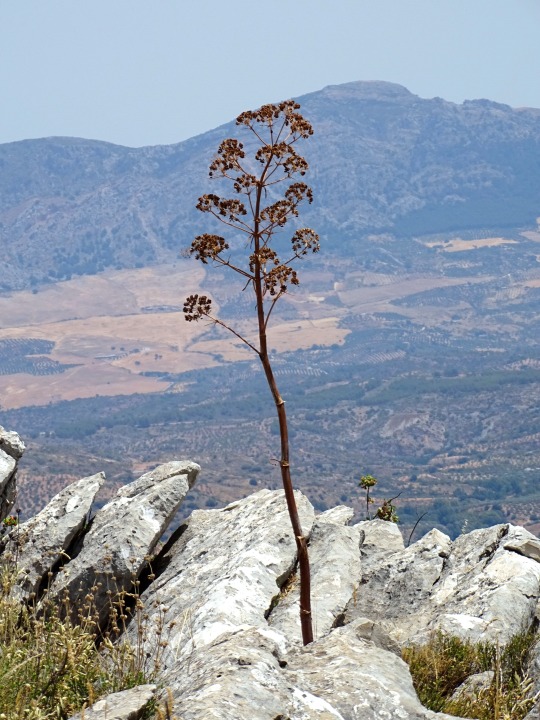
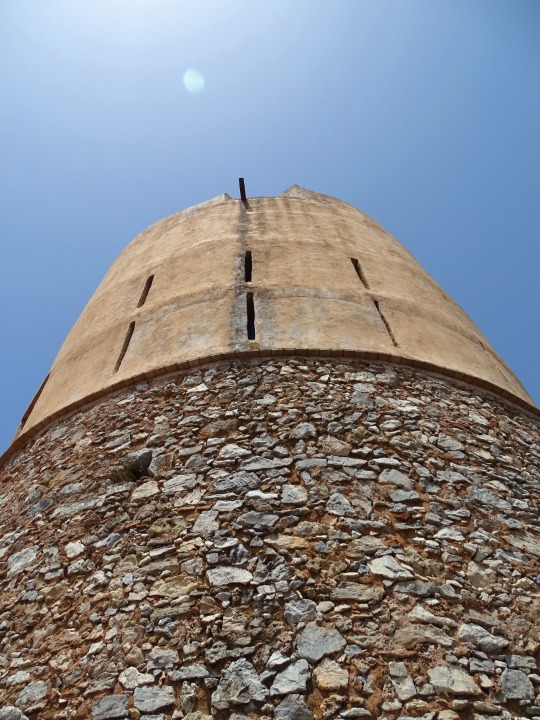

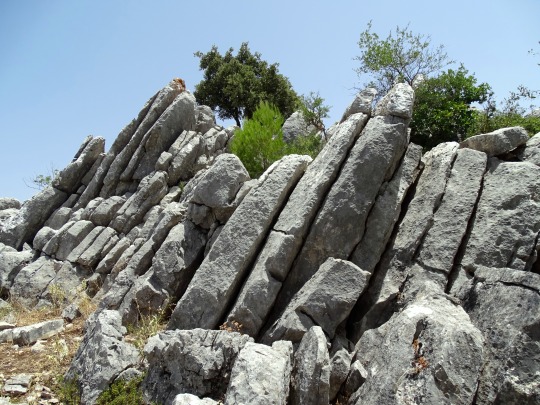

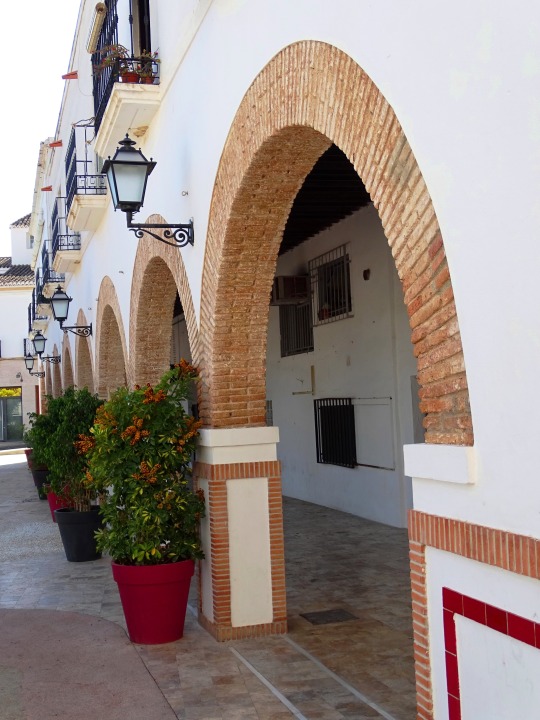
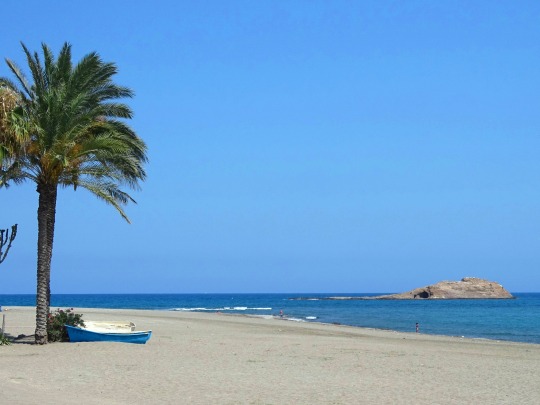
Andalusia Day
Andalusia Day or ‘Dia de Andalucia,’ is celebrated every year on February 28 in Spain. Andalusia is located in the southernmost region of the country and on this day in 1980, the people of the region voted to make it an autonomous community in Spain. The word ‘autonomous’ implies the power of a community or territory to self-govern and make its own decisions without outside interference. Although a few nationalist groups prefer to celebrate on December 4, February 28 is the officially recognized date for Andalusia Day.
History of Andalusia Day
On February 28, 1980, the people of Andalusia organized and held a referendum, titled the ‘Statute of Autonomy of Andalusia referendum.’ The purpose of the vote was to decide on the independence of the Andalusian community. The referendum was successfully passed and from that day, Andalusia became autonomous.
However, a few nationalist groups choose to celebrate Andalusia Day on December 4, a date which marks the demonstrations to demand independence that took place in 1977. Andalusia Day is celebrated as a community public holiday where businesses may close to participate in the festivities. It is, however, only celebrated in Andalusia and not the rest of Spain.
Some schools may also close for a week to participate in a ‘Semana Cultural’ or ‘Semana Blanca’, which means a cultural week or white week respectively. Schools also celebrate the Friday before Andalusia Day with a traditional Andalusian breakfast of sliced toast drizzled in olive oil and a cup of orange juice. Students also color in pictures of the symbols of Andalusia.
Andalusia Day is usually observed by families in intimate gatherings, although festivals and other social activities also mark the day. The people of Andalusia usually decorate their buildings with the national flag, as well as green and white bunting.
Andalusia is located in Southwestern Europe, south of the Iberian Peninsula. It is largely an agricultural community, though, in recent times, it has seen exponential growth in industrialization. Andalusia has eight parts to it, Almeria, Cádiz, Córdoba, Granada, Huelva, Jaén, Málaga and the capital city of the community, Seville.
Andalusia Day timeline
1918 Flag of Andalusia
The flag of Andalusia is designed by Blas Infante, a writer, historian, and politician also referred to as the father of Andalusian nationalism.
1977 Demonstrations for Independence
A public protest takes place to demand Andalusian autonomy.
1980 The Statute of Autonomy
The ‘Statute of Autonomy of Andalusia’ referendum is passed into law.
2007 Parliament of Andalusia Awards
The Parliament of Andalusia grants the Medal of Andalusia to Miguel Báez Espuny and honors José de Sousa Saramago, with the title, ‘the Favorite Son of Andalusia.’
Andalusia Day FAQs
Does Andalusia have a president?
Yes. The current president of Andalusia is Juan Manuel Moreno Bonilla.
What language is spoken in Andalusia?
Spanish is the official language, although you will find different dialects depending on the region.
Is Andalusia a small community?
Andalusia is home to over eight million people so, a relatively large population considering its size, a little over 87,000 kilometers square.
How to Observe Andalusia Day
Spend time with friends and family
Celebrate with color
Use the hashtag
For all the wonderful Andalusian people, celebrate this special day by taking the time to spend with friends and family. Also take a moment to reflect on what being part of a community means to you.
Decorate your home, office, or place of business with colors representing Andalusia. The colors of their national flag are dark green and white.
Spread the sense of pride in the community on Andalusia Day by using the hashtag #andalusiaday on all your social media platforms. Start an online conversation.
5 Fun Facts About Andalusia
Largest population
Land of the vandals
Caves of Nerja
Christopher Columbus
Andalusia’s hinterland
Andalusia is one of the autonomous communities in Spain with the largest population.
Andalusia means ‘land of the vandals.,’ and refers to a German tribe that settled there in the third and fourth centuries and were considered destroyers.
In Andalusia’s Caves of Nerja, the earliest-known artwork in human history was found.
It was from Andalusia that Christopher Columbus embarked on his famous journey of discovering America.
Andalusia’s hinterland is the hottest region of Europe.
Why Andalusia Day is Important
It’s a declaration of independence
It’s an opportunity to have fun
It reminds us of the value of community
The day is a joyful reminder of the fact that Andalusia is a self-governing community. It’s a celebration of the region’s history in achieving sovereignty.
Andalusia Day affords individuals the chance to partake in activities. Look out for community events such as cultural week or festivals that pay homage to this day.
Andalusia Day promotes a great sense of community among Andalusians. The shared history helps to break down barriers.
Source
#Andalusia Day#Dia de Andalucia#28 February#Sevilla#Seville Cathedral#summer 2021#original photography#Spain#España#cityscape#landscape#architecture#tourist attraction#Dalías#Alcazaba of Almería#Mojácar#Carboneras#Mediterranean Sea#Sierra de las Nieves National Park#Sierra Nevada#La Calahorra#Casasola Dam & Reservoir#Bayárcal#28 February 1980#anniversary#Spanish history#travel#vacation#landmark
3 notes
·
View notes
Text
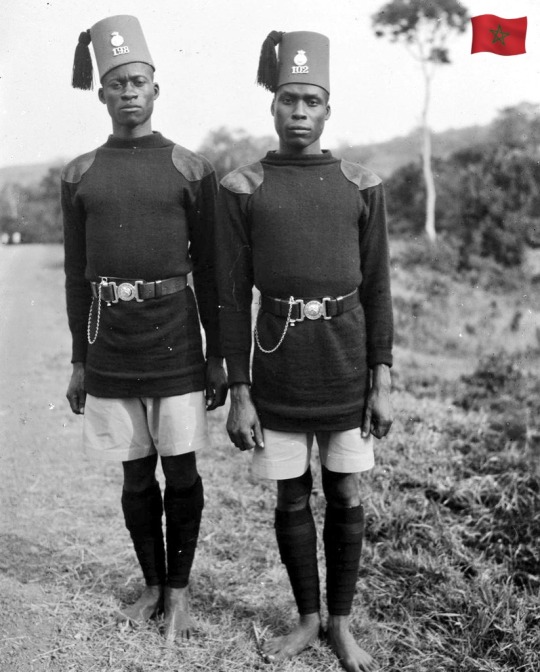
The Moors Ruled Spain and Portugal 754 Years Before The Collapse of The Mali Empire
Here are some facts about the Moors in Europe:
1. The Moors Introduced Numerous New Fruits and Vegetables to Europe
The Moors introduced a variety of fruits and vegetables that were previously unknown in both Spain and Europe, and thus deemed exotic novelties. These items included peaches, lemons, oranges, saffron, cotton, rice, silk, sugar cane, apricots, figs, dates, pomegranates and many others. Although commonplace today, during the Middle Ages these items were almost alien to the Spanish. Today, centuries later, they have become staples of Spanish production and diet.
2. The Moors Were Several Steps Ahead of Medieval Europe
At the time of their conquest of the Iberian Peninsula , the advanced civilization of the Arabs was renowned for its architecture, science, mathematics and exploration. Upon their arrival in Spain, the Moors introduced architectural techniques that amazed European stonemasons. One of the most impressive examples of Moorish architecture is the Alhambra, a palace complex and fortress located in Granada, Spain. Construction began in 1238, and it surpassed any similar palace in grandeur and beauty. Today, it remains one of the best-preserved palaces of the Islamic world.
3. Chess Spread Throughout Europe Thanks to the Moors
Even though chess is over 1,500 years old, it was first introduced to Europe in its current form by the Moors. Chess spread from India to the Arabic world and was introduced to Spain by the Moors. It quickly became popular and swept across Europe's courts and society. In medieval Spain, chess was a popular game of strategy and patience. The first written mention of chess in Spain dates back to 1010 AD, in the Catalonian Testament.
4. The Moors Were Very Strict About Their Hygiene
The Moors were known for their love of cleanliness, with a popular saying claiming that a Moor "would rather go without bread than without soap.” Due to their traditions and the rigors of their religion, the Moors were fond of looking spic and span, and encouraged frequent bathing; In the Moorish town of Cordoba, there were around 900 public baths . This allowed for proper hygiene during a time when plumbing and running water were not yet widely available. Some sources also claim that the Moors brought some form of soap to Europe, introducing a new era of cleanliness.
5. Education Was Very Important to the Moors
Education was of utmost importance to the Moors, who ensured that it was universally available to all within their realm. This stood in stark contrast to medieval Europe, where 90% of the population remained illiterate, and education was reserved for only the wealthiest nobles and clergy. In fact, there were even some European Kings who could not read or write. The Moors established 17 great universities in Spain, located in cities such as Cordoba, Malaga, Granada, Seville, Toledo and Almeria, among others.
6. Numerous Moorish Words Found Their Way into Modern Spanish and English
After their arrival in Europe, the Moors brought with them new concepts and words that quickly became a standard part of everyday language. Spanish has up to 4,000 words of Arabic origin, including algebra, checkmate, and influenza. Other examples are cipher, alcohol, chemistry, typhoon, orange, alkaline, cable and nadir.
7. The Moors Were Very Industrious
Upon their arrival in Iberia, the Moors saw the potential in the old Roman irrigation systems they found and quickly adopted, enhanced and revived them. This led to a surge in agricultural productivity and a boost in the economy. They were also able to cultivate new crops they brought with them such as lemons, oranges, figs, dates, and apricots. Soon, Spain became one of the largest producers of crops in Europe, all thanks to the Moors' innovative irrigation techniques.
8. The Moors Greatly Transformed Spanish Cuisine
Spices were a rare commodity for Europeans, and their food was often considered bland. The Moors changed that by bringing over hundreds of unique spices, new recipes and innovative methods of preparing food. This culinary revolution gave rise to many wondrous dishes that we still enjoy today. The Moorish spice markets were famous for their variety, offering choice for cooks of all styles. The colors and smells of these medieval markets must have been truly incredible.
#ramadanmubarak#themoorish#Asiatics#ceasethefolly#Moors TheUnitingofAsia NobleDrewAli#DrewAli Moroccans#la ilaha illa allah
8 notes
·
View notes
Text
Sure win prediction today,
Sure win prediction today,
Betting on sports is both an art and a science. While no prediction is ever 100% guaranteed, expert analysis, statistical insights, and deep knowledge of the game can increase the chances of success. In this article, we provide today’s best sure-win predictions based on in-depth research and key factors.
Factors Considered in Today’s Sure Win Predictions
1. Team Form and Performance
Before making any prediction, we analyze the recent form of teams, their performance in the last five matches, and their head-to-head statistics. Teams in good form with a strong winning streak are more likely to secure victory.
2. Injury and Suspension Reports
Key players being unavailable due to injuries or suspensions can heavily impact a team’s performance. We take these factors into account to adjust our predictions accordingly.
3. Home and Away Advantage
Some teams perform exceptionally well at home but struggle when playing away. We assess home and away records to determine which teams have an edge.
4. Tactical Analysis
Understanding how teams set up their formations and strategies helps in predicting possible match outcomes. Teams with strong defensive structures are less likely to concede, while attacking teams create more goal-scoring opportunities.
5. Betting Odds and Market Trends
Analyzing market odds gives insights into how bookmakers and betting markets view a particular match. Sudden changes in odds often indicate insider knowledge that can be useful for bettors.
Sure Win Predictions for Today
Here are some of today’s most reliable betting predictions based on expert analysis:
Manchester City vs. Sheffield United – Manchester City to win ✅
Reason: Superior squad depth, strong home record, and Sheffield United’s poor defensive form.
Barcelona vs. Getafe – Over 2.5 Goals ✅
Reason: Barcelona’s attacking strength and Getafe’s tendency to concede away from home.
Real Madrid vs. Almeria – Real Madrid to win and over 1.5 goals ✅
Reason: Real Madrid’s unbeaten streak and Almeria’s weak defensive record.
Juventus vs. Bologna – Both Teams to Score (BTTS) ✅
Reason: Bologna’s recent attacking form and Juventus’ defensive inconsistency.
PSG vs. Lyon – PSG to win ✅
Reason: Home advantage, star players, and Lyon’s poor away form.
Final Betting Tips
Always analyze multiple factors before placing a bet.
Consider combining bets for higher value but keep risk management in mind.
Avoid emotional betting; always bet responsibly.
Use free bets and promotions to maximize winnings.
Conclusion
While there are no absolute guarantees in sports betting, our sure-win predictions are based on well-researched analysis and expert insights. By following trends, statistics, and tactical assessments, bettors can increase their chances of success. Bet wisely, stay disciplined, and enjoy the thrill of sports betting!
0 notes
Text
So I'm really bored and I saw someone do this with Canada so yeah what if the mercs where from Spain? (A post that only 3 people might understand. Sorry not sorry)
So Spy is obviously from Catalonia. Like canonically he speaks catalan! (Btw because of this I have the hc that Spy is from the south east of France. Cause why the fuck else you learn catalan?)
Demo is from Galicia. I don't have anything else to say
Idk why but Heavy has the vibes of being basque
Soldier is Castilian, like I don't really care which one of the Castillas but he is Castilian. Also he would probably join the Legion
Engie is Andalucian, to be specific from Almeria (cause most of the westerns where recorded in the tabernas desert in Almeria so :] )
Okey tbh I could see Sniper being from like different places in general but if I have to pick one probably would be the canary islands. Also his biological parents are annoying in the way that Madrilian people are so ig you also have that
Scout would be from Valencia. Kinda cause is like the third biggest city and I can't see him as from Madrid or Barcelona and idk the vibes are there (add to this the fact that Valencia is close to Catalonia and they have a similar language so ig this can mean something)
Usually I would say that Pyro can be from anywhere. But in Valencia there's the fallas which is a celebration where every year they build cool ass wooden sculptures and burn them. And I'm sure they would love that. So fuck it I'm making Pyro Valencian too
Okey, for Medic there's 2 options: or he is from a town in the Pirenees. Or he is from a german family that decided to stay in Benidorm
1 note
·
View note
Text
This overlooked gem in Spain's Andalucia could be a hit with Brits next year as easyJet launches new flights
EASYJET has launched new flights to this hidden gem in Spain’s Andalucia – and it’s set to be a hit with the Brits. Budget airline Easyjet has launched new flights to the undiscovered treasure of Almeria from London Southend and Bristol Airport. About two hours from Malaga and Alicante, the coastal city has one of the driest climates in Europe, with temperatures above 20C even in December. One…
0 notes
Text
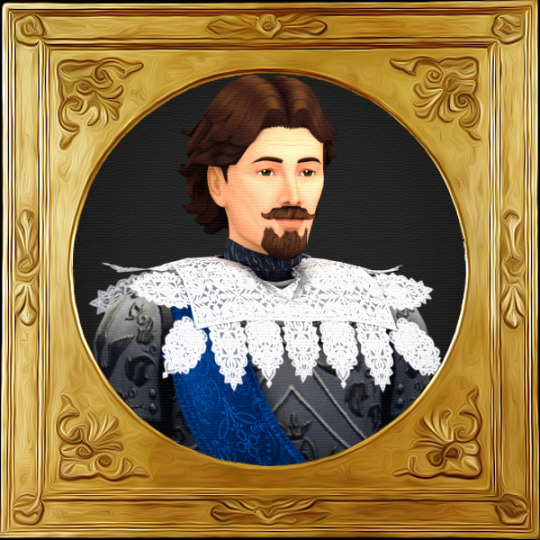
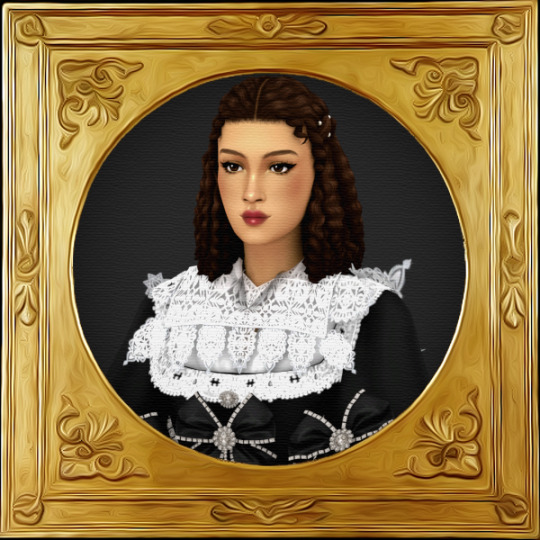

Ophelia of Lausanne, Queen of Windenburg (1620-1673) - Part 8 - Captivity & James' Execution
James and Ophelia were taken to Windenburg where they stayed at the Palace of Verdun, closely monitored by Parliament. Ophelia’s youngest children, who she hadn’t seen in three years, were put in the custody of Lady Eugenia Lollard, daughter of the Revolutionary Earl of Litchfield. Ophelia was allowed to send letters to Prince George and Princess Sophie during her confinement. Ophelia and James remained hopeful that they would be liberated. Prince James had been in Almeria convincing his brother-in-law to help reclaim their throne. Royalist insurrections erupted in Coventry, Devonshire, and Glencraig, with a large peasant revolt beginning int he Isle. The Revolutionary Soldiers began rebelling against Parliament when they failed to pay them. Under the Earl of Kentwood, the Victorian Lords started to invade Witham and Courland in September of 1658.
On October 6th, the Duke of Dartmouth issued a warrant charging the King for treason. The country was in shock, as a King had never been charged before. James was taken from captivity at Verdun Palace and was transferred to Hertford Castle. Ophelia wept the whole time as the guards took James away from her. After a month of trials, Parliament found James guilty of killing 200,000 people and instigating insurrections across the country. James was scheduled to be executed on November 16th. On November 14th, Ophelia, George, and Sophie were permitted to visit James for the last time. James was executed in front of the Palace of Verdun at 4 PM on November 16th, 1658, with Ophelia watching from inside. Ophelia fainted at the sight of her husband’s death.
Following his execution, James’s head was paraded around the city with the people chanting and singing in the streets. Despite her grief, Ophelia managed to escape the city during this time of celebration. Ophelia, along with Paulina Charleston, Cecelia Bentwick, and Henrietta Burghley, and her ladies-maid escaped the city with assistance from the servants at the Palace. The Queen reportedly crawled through the sewers along with her ladies-in-waiting. After climbing through the sewers, the Queen and her party traveled on the carriage to the docks incognito where they sailed for Brichester. The Queen’s chamberlain, Sir Peter Thompson traveled to Glencraig and smuggled Prince George and Princess Sophie to Brichester. On November 20th, Ophelia arrived at Brichester where she reunited with all of her children aside from Louise. Ophelia reportedly fell into the arms of her children upon embracing them and began crying uncontrollably.
#sims4#sims#royallegacy#legacy#royalty#ts4 royals#ts4#ts4 royal#ts4 legacy#sims 4 story#ts4 story#sims 4 history#ts4 history#sims 4 historical#ts4 historical#the sims#the sims 4#sims 4 baroque#ts4 baroque#windenburghistory
39 notes
·
View notes
Link
On our last trip to Spain, we drove along Costa Blanca, arriving in Valencia we drove down to Alicante, Mojacar to Almeria. It is a beautiful drive, Valencia is probably my favorite city, on the way down we stayed in a villa near Denia & Xabia, the beaches were fantastic, and the food was great
0 notes
Text

26.11.24 16:00 FC Tyumen - FC Krasnodar Not to lose and Total Over(1.5) - FC Krasnodar : Yes 1.33 26.11.24 18:15 Shinnik - Akron Tolyatti 1T Handicap(+1) 1.31 26.11.24 20:30 CSKA Moscow - Rubin Kazan Not to lose and Total Under(4.5) - CSKA Moscow : Yes 1.31 26.11.24 20:45 Sparta Prague - Atletico Madrid Total Over(2) 1.44 26.11.24 20:45 Slovan Bratislava - AC Milan Goals in both halves : Yes 1.42 26.11.24 13:00 Kobe - Central Coast Mariners Not to lose and Total Under(4.5) - Kobe : Yes 1.43 26.11.24 13:00 Ulsan Hyundai - Shanghai Port 2T Handicap(+1.5) 1.36 26.11.24 15:00 Buriram - Kawasaki X2 1.39 26.11.24 15:00 Shandong Taishan - Johor Darul Takzim FC Both teams to score: Yes 1.61 26.11.24 17:00 Al-Sharjah - Istiklol Dushanbe Al-Sharjah 1T Individual Total Over(1.5) 1.36 26.11.24 19:00 Sepahan - Al-Wihdat 2T Handicap(+1.5) 1.58 26.11.24 19:00 Al-Sadd - Al-Hilal Riyadh 1T Handicap(+2) 1.39 26.11.24 19:00 Al Shorta Baghdad - Al-Wasl Dubai Result at 75:00 min. Ind. Total Over2(0.5) 1.39 26.11.24 20:30 SC Austria Lustenau - SV Stripfing/Weiden Total Over(2) 1.42 26.11.24 21:00 Manises - Getafe 1T Handicap(+4.5) 1.36 26.11.24 21:00 Parla Escuela - Valencia 1T Handicap(+4.5) 1.34 26.11.24 22:30 Almeria - Cordoba Not to lose and Total Over(1.5) - Almeria : Yes 1.42 27.11.24 01:00 Fluminense - Criciuma 1 1.65 27.11.24 02:00 Fortaleza - Flamengo RJ 2T to score Yes 1.31 27.11.24 03:30 Atletico MG - Juventude RS 1X 1.39 27.11.24 03:30 Palmeiras - Botafogo RJ 2T Handicap(+1) 1.38 26.11.24 22:00 Cambuur Leeuwarden - FC Den Bosch Not to lose and Total Over(1.5) - Cambuur Leeuwarden : Yes 1.38 26.11.24 22:00 Roda - Vitesse Not to lose and Total Over(1.5) - Roda : Yes 1.38 26.11.24 22:00 FC Utrecht (res) - Excelsior Total Over(2.5) 1.48 26.11.24 22:45 Hibernian - Aberdeen 2T Handicap(0) 1.8 26.11.24 23:00 Bayern Munich - PSG Not to lose and Total Under(5.5) - Bayern Munich : Yes 1.37 26.11.24 23:00 Young Boys - Atalanta Total Over(2.5) 1.51 26.11.24 23:00 Sporting Lisbon - Arsenal Both teams to score: Yes 1.68 26.11.24 23:00 Manchester City - Feyenoord 2T Handicap(+3) 1.34 26.11.24 23:00 Bayer 04 Leverkusen - Salzburg Not to lose and Total Over(2.5) - Bayer 04 Leverkusen : Yes 1.45 26.11.24 23:00 Inter Milan - RB Leipzig Not to lose and Total Over(1.5) - Inter Milan : Yes 1.32 26.11.24 23:00 Barcelona - Brest Total Over(3) 1.49 STATistik of tips : https://t.me/KapparaLive/1720 Telegram : https://t.me/kapparavip (здесь прогнозы по ходу дня) Best bookmakers : http://hubu.ru/sportwager Watsapp : +380684476012 All so on http://kappara.online (english tips) Portal: http://kappara.ru
0 notes